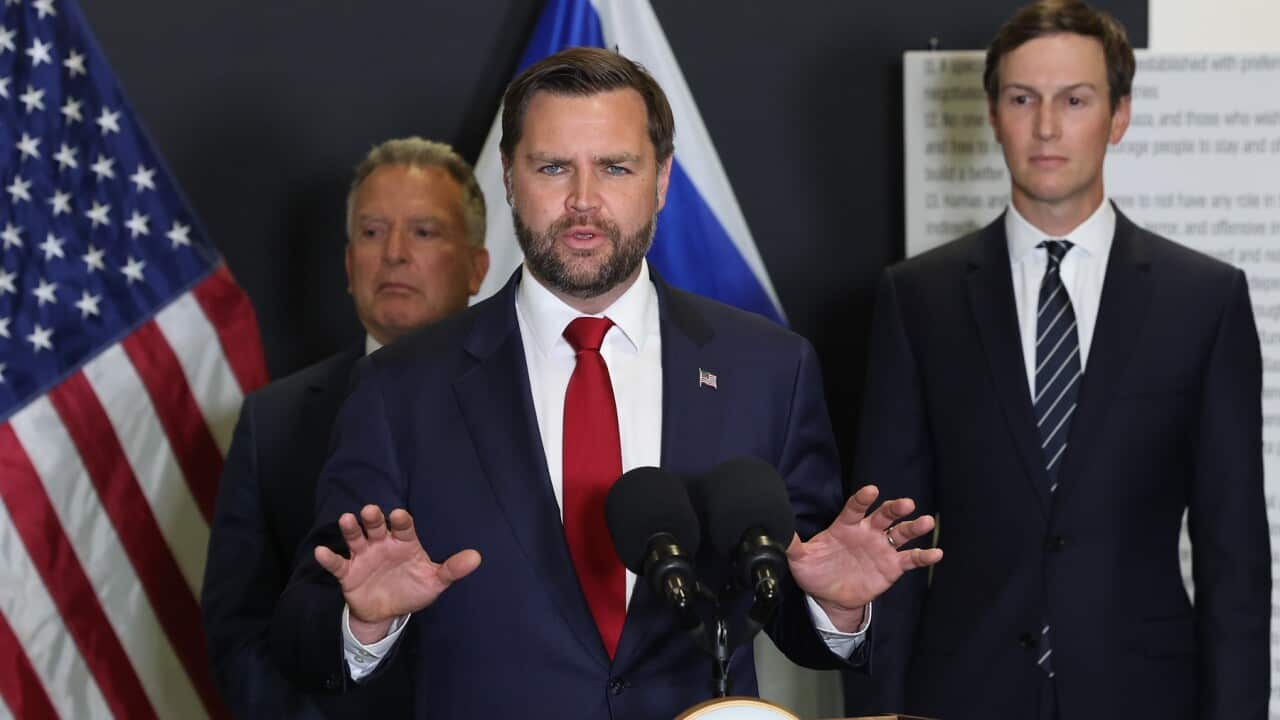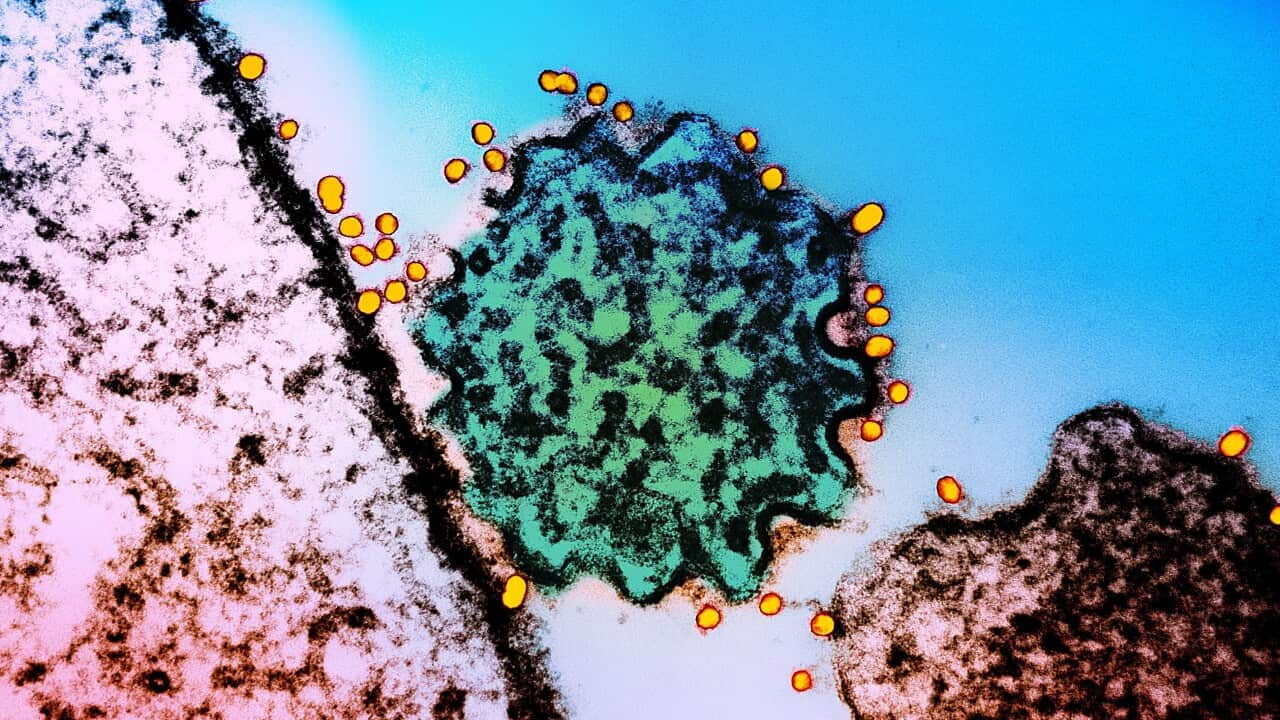Listen to Australian and world news, and follow trending topics with SBS News Podcasts.
TRANSCRIPT
More than 24 hours after Israel allowed aid deliveries to resume in Gaza, the United Nations says there has been some progress.
The World Food Program says more than 520 trucks have arrived in Gaza in the past 10 days since the Gaza ceasefire came into effect.
While that is enough to feed nearly half a million people for two weeks - it is still well under the 500 to 600 aid trucks that entered Gaza daily before the war.
Abeer Etefa is a spokesperson for the World Food Programme.
She says it has been a happy moment for families receiving the aid, but it is not enough.
"And the response has been really overwhelming. People are showing up in large numbers, grateful for the efficiency of the delivery. As we speak, half a million people are benefitting this - from the fresh bread distributed around 100,000 bundles, 2 kilograms each to help families. Sustaining the ceasefire is vital. It is only way we can save lives and push back on the famine* in Gaza. Full implementation will allow the WFP to operate at the scale required."
She says some aid convoys are getting through, without any cases of looting.
But there remains a real bottleneck on the ability to scale up aid, unless all the border crossings are opened.
"You know the IPC* was published on 22 August has put the numbers of people in famine - or risk of famine at 500,000 - so half a million people are famine conditions in the north of Gaza. It is a very dire situation. We have lost access to the north of Gaza for a month now. So the situation is extremely dire. And it is a priority to get of course to the northern parts of Gaza - and Gaza City."
Israel's deadly strikes in Gaza over the weekend threatened to unravel the ceasefire, with both Hamas and Israel accusing each other of repeated breaches of the agreement.
The pace of returning hostage bodies has been a point of tension.
The office of Israeli Prime Minister Benjamin Netanyahu says the Rafah crossing will remain closed until all the bodies of hostages are returned.
So far, Hamas has returned 15 of the 28 bodies of deceased hostages - a major term of the first phase of the ceasefire agreement.
As part of the Trump administration’s efforts to strengthen the ceasefire agreement, US Vice President JD Vance has visited Israel to progress Donald Trump's 20-point peace plan.
Outside the US embassy in Tel Aviv, Rotem Cooper appealed to Mr Vance, saying he can't rest until his father's body in Gaza is returned.
"Mr Vice President, as you well know, the job is not yet done. There are still hostages in Gaza, our loved ones who have been held for more than two years by Hamas. Families who have been waiting every single day for the blessed call, the call informing them that their loved one is finally coming back."
During his trip, Mr Vance will meet with Israeli Prime Minister Benjamin Netanyahu and begin discussions on the long-term issues to bring about a permanent end to the war.
Mr Vance says the return of all the hostage bodies may take some time.
"It is a focus of everybody here to get those bodies back home to their families so that they can have a proper burial. Now, that said, this is difficult. This is not going to happen overnight. Some of these hostages are buried under thousands of pounds of rubble. Some of the hostages, nobody even knows where they are. That doesn't mean we shouldn't work to get them. And that doesn't mean we don't have confidence that we will. It's just a reason to counsel in favor of a little bit of patience. This is going to take a little bit of time."
He visited a new centre for civilian and military cooperation - where US troops have been deployed to monitor the Gaza truce.
He says he remains optimistic about the durability of the ceasefire.
"What we've seen in the past week gives me great optimism the ceasefire is going to hold. And if we get from where we were a week ago to a long-term, durable peace between Israel and Gaza, there are going to be hills and valleys. There are going to be moments where it looks like things aren't going particularly well. But given that, and given the history of conflict, I think that everybody should be proud of where we are today. It's going to require constant effort. It's going to require constant monitoring and supervision."
In Cairo, Hamas officials are meeting with mediators from Egypt and Qatar to discuss the continuation of the fragile Gaza ceasefire - and longer-term issues about the future of Gaza.
The disarmament of Hamas and governance of the enclave remain sticking points.
Hamas has condemned Israel’s failure to reopen the Rafah crossing, saying it is blocking aid and medical treatment for those who are injured and sick.
In Gaza City, families are searching for the bodies of their relatives trapped under the rubble.
Jumaa Al-Safadi says he feels retrieving the bodies of his family is his duty - so he can give them a proper burial.
(Arabic* then translated into English): "It is an indescribable feeling. No one can describe the extent of loss that I am living. You are talking about a father, a mother, a brother, and a sister, and that you have lost the most precious thing that you can possess, something that cannot be compensated. This is why it is my (duty) to retrieve them from under the rubble and put them somewhere, where we can honour them."
More than 90 per cent of the enclave's population of more than 2 million people have been displaced.
With the ceasefire still holding, families have returned to their homes to find only rubble.
Jaco Cilliers - from the United Nations Development Program - says the rebuilding process is a huge challenge.
"People are hopeful of returning. They want to start to rebuilding their lives as soon as possible. And when the UNDP look forward to supporting this process as well. One of the biggest challenges for the rebuilding efforts will be the focus on removing the debris. It is equal to 13 Great Pyramids of Giza. So it will be a massive undertaking. You can't start with the rebuilding process if you don't remove the rubble."
UN development experts estimate the cost of rebuilding Gaza after two years of war is A$108 billion.
Egypt will host an international conference on Gaza reconstruction next month.













